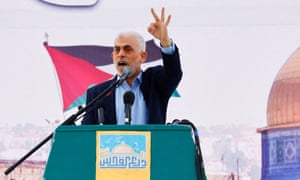|
Mock Donald Trump's Gaza gambit — but he's exposed one vital truth | US | News Donald Trump, ever the disruptor, has done it again. His latest proposal — grandiose, controversial, and yet not without a kernel of strategic insight — suggests nothing less than a radical rethinking of Gaza and, by extension, the Middle East. He envisions a total transformation: Gaza, no longer a nest of terror but a dazzling Mediterranean Riviera. The cynics scoff. The usual critics rage. But beneath the bluster lies an unavoidable truth: something fundamental must change. Before engaging with the specifics of Trump’s vision, one must confront the grim, inescapable reality that led to this moment. October 7 was not simply an attack on Israel. It was an assault on civilisation itself. The images are burned into the conscience of all who dare to look: babies butchered, women raped, families incinerated in their homes. A pogrom live-streamed for the world to see, as the democratic world hesitated, whispered about "context" and, in some quarters, even cheered. Trump, for all his flaws, appears to understand what so many world leaders refuse to acknowledge — that the events of October 7 must never be repeated, not in Israel, not in Europe, not in any liberal democracy that still values its own survival. For that to happen, the logic of appeasement must be abandoned. The cycle of war, temporary outrage, international pressure, and Israeli restraint must end. Hamas, a death cult masquerading as a political movement, cannot be rehabilitated. It cannot be "engaged". It must be eradicated—root, branch, and above all, ideology. Trump’s proposed redevelopment of Gaza — a glittering coastal paradise in place of a terrorist enclave — is the kind of grandiosity that defines him. It is unrealistic, yes. But it is not without its merit. At its heart lies a fundamental question: why must Gaza remain a bastion of despair and fanaticism? Why, despite billions in international aid, does it produce neither prosperity nor peace, but only missiles and martyrdom? The answer lies in the political equation that governs it. The world has long treated Gaza as a humanitarian problem to be managed, rather than a malignant force to be confronted. The truth is more unsettling. Gaza, under Hamas, is a project. It is an experiment in perpetual war, bankrolled by the patrons of global jihad and sustained by an ideological infrastructure that extends far beyond its borders. To change Gaza, one must do more than defeat Hamas militarily. One must destroy its raison d’être. And that begins with severing the financial arteries that nourish its narrative. Hamas is not merely a military force; it is a global enterprise. Its operatives move money through Qatari banks. Its propagandists shape the discourse in Western universities. Its ideology infects international institutions, cloaked in the language of human rights and resistance. It survives not because it is invincible, but because it is indulged, protected, and, most scandalously, funded. If the world is serious about peace, it must stop financing war. The West cannot, on one hand, condemn Hamas’s atrocities while allowing its ideology to fester in the halls of academia, the corridors of power, and the funding streams of well-intentioned but compromised NGOs. The fight against Hamas must extend beyond Gaza’s tunnels to the institutions that provide it with legitimacy. Trump’s proposal, however impractical in its specifics, forces an urgent conversation: What is to be done with Gaza? The old model — containment, management, endless cycles of violence and negotiation — has failed. Hamas, as long as it exists, ensures that the children of Gaza will be raised not for life, but for death. To break this curse, one must go beyond military action. One must rethink the entire ecosystem that allows Hamas to thrive. There are, of course, many who will dismiss Trump’s vision outright. But to dismiss the need for a radical solution is to resign oneself to the status quo — one where Hamas regroups, rearms, and repeats October 7, again and again, until the world finally understands what Trump, for all his bombast, appears to grasp: that some enemies cannot be accommodated. They must be defeated. The choice is clear. One can continue the tired rituals of diplomacy, the pieties of ceasefires, the comfortable delusions of "both sides". Or one can accept reality — that peace begins where Hamas ends. That stability requires more than aid; it demands the dismantling of the ideological machine that makes Gaza a launchpad for terror rather than a home for its people. Trump’s words may shock, but they do what so few dare to do: they force us to ask the hard questions. And perhaps, just perhaps, they open the door to real answers. Source link Posted: 2025-02-05 15:39:26 |
Everyone’s saying same thing as Meghan Markle launches Netflix trailer | Royal | News
|
|
Guantánamo Bay: the US prison camp in Cuba Trump is eyeing for illegal migrants | Guantánamo Bay
|
|
President Assad reportedly flees Syria as rebels enter capital Damascus
|
|
Rishi Sunak insists he's not resigning as an MP - but by-election rumours swirl | Politics | News
|
|
Captain Teague wins highest-profile one-horse race in years after walkover | Horse racing tips
|
|
The killing of Yahya Sinwar – podcast | News
|
|
Supermarket shoppers buying avocados issued room temperature warning
|
|
European football: Barcelona hit five but Lyon are humbled in Coupe de France | European club football
|
|

